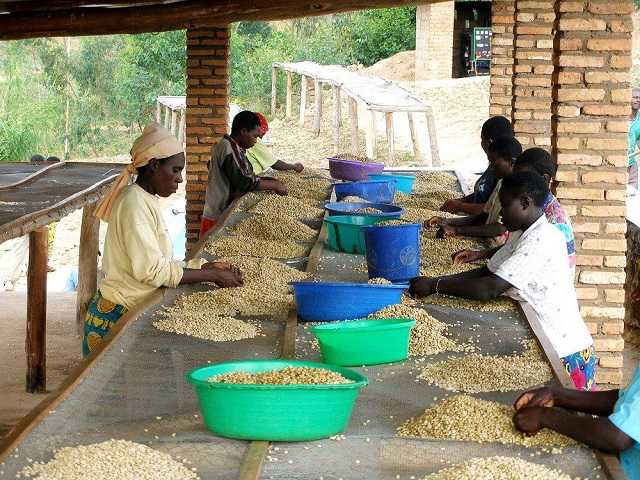WALLINGFORD, UK – CABI is investigating how finance can help boost Africa’s coffee value chain to maximise the production and export capabilities of micro, small to medium enterprises and individual smallholder producers of the key cash crop. CABI is an international, intergovernmental, not-for-profit organization that improves people’s lives worldwide by providing information and applying scientific expertise to solve problems in agriculture and the environment.
A study by KPMG in 2014 found that Africa produced and exported coffee to the value of US $6 billion. But that this – through roasting, blending, packaging, branding etc – was sold abroad in final products fetching $100 billion.
In other words, 94% of the value of the coffee produced in Africa was captured abroad due to deficiencies in the continent’s coffee value chain. This includes inadequate application of improved agricultural and value addition practices.
Coffee production in Africa currently accounts for 10% of the global coffee market and is a primary source of income for more than 12 million households.
The largest annual export value of African countries in 2021 is recorded by Ethiopia at US $1.4 billion, followed by Uganda ($883m), Kenya ($229.5m) and Tanzania ($187m).
However, overall production and export of coffee in Africa is low because many farmers lack skills and knowledge due to little or no access to extension services which offer advice on how to grow more profitable crops free of pests and diseases.
Many farmers are also not able to access and use modern, cost-saving technologies such as improved varieties, efficient pest control methods and mechanized labour. They are further unable to diversify into complementary agri-businesses.
As part of the appraisal, which is funded by the African Export-Import Bank, CABI is seeking to identify where gaps exist between the demand for, and supply of, financial investment for the ‘missing middle’ and ‘last mile’ borrowers in the coffee value chain.
This includes those serving the medium and small enterprises involved in coffee value addition, such as café chain operators, and those serving smallholder producers and primary processing activities.
The work is being conducted in partnership with the International Coffee Organisation (ICO) and the Inter African Coffee Organisation (IACO) and will see coffee producers in Cameroon, Ethiopia, Gabon, Kenya, Tunisia and Uganda benefit.
The IACO in 2019 joined forces with CABI and the ICO to launch a $950 million ‘Africa Coffee Facility’ (ACF) to boost Africa’s coffee industry and achieve a 40% increase in high-quality exports of coffee around the world.
Key aims of the ACF – over its 10-year tenure – will be to invest $500m on building a sustainable coffee supply, $100m on improving demand, market linkages and investments, $200m on putting in place climate change adaptation and environmentally resilient practices and $150m promoting knowledge management and dissemination.
Dr Daniel Karanja, Project Manager and Deputy Director, Development, Africa, based at CABI’s regional centre for Africa in Nairobi, Kenya, said, “The low production of coffee and quality of the product in Africa compromises incomes, food and nutrition security.
“There is inadequate investment in various aspects of the coffee value chain including coffee rehabilitation – such as replacing dead trees, regenerating farms after prolonged neglect and opening new land for coffee farming – due to a lack of finance.
“Existing information on the types of loan products that are necessary to fill the current gap (the needs and appetite for financing of the coffee value chain actors) will be collected through Key Informant Interviews and analysed as part of the study.”
Dr Karanja added that this work will help provide further insight into the loan sizes suitable for the various actors who need finance within the value chain.
These include the smallholder farmers and their organizations (the ‘last-mile borrowers’), large-scale producers, large roasters and packers, micro, small to medium enterprises and café chain operators (the ‘missing middle’).
The work will also establish the loan thresholds at which the cost of lending can be recovered by Afreximbank while ensuring acceptable levels of returns on the investment.
Information on the expected annual turnover of loans disbursed will also be collected through the study and corroborated via information collected through field surveys.










